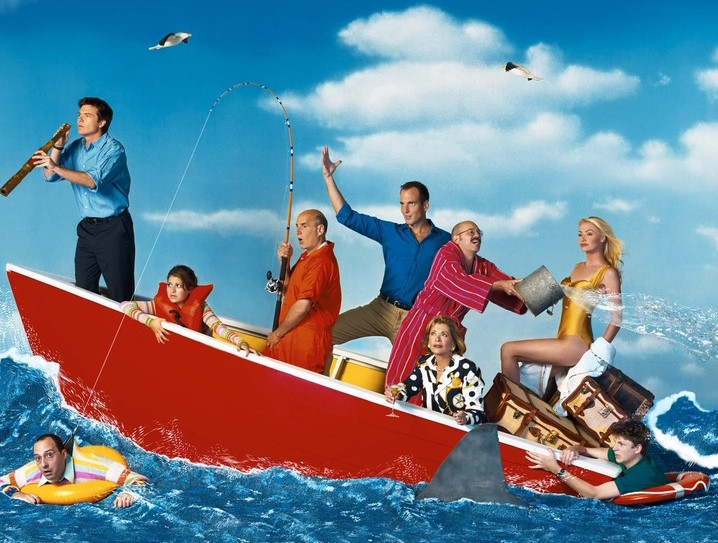
I was rewatching Arrested Development, mainly because I was curious after it started popping up in my recommended Youtube feed. The main impetus for this was because the clips were bad and I was wondering if the show was robbed of its energy when it was chopped up and displayed into short clips for casual consumption. I've watched through what I consider the original "Arrested Development" experience, but not Season 4 or 5 although I have vague clues about what happens in those.
It probably is one of the smarter sitcoms developed. Like it's not something I really feel that strongly about but for the time especially it probably was. However, it has sort of a Futurama effect where the jokes themselves are good but the delivery tends to be nothing particularly special to actually sell the joke in question. I feel bad saying that because it reveals my sense of humor for two shows, but I don't actually laugh that much through a lot of shows unless it really hits a particular bit of humor for me or if I'm watching it with other people.
So, without regard to the previous statement, it is a very easy show to watch. Like it slides over you without you really realizing. I had only intended to watch 3 episodes one day and was mystified beyond belief when I realized I had watched 10 episodes from Season 1. Despite this easiness of the watch for the show, it also just lacks the specific kinds of comic energy that 30 Rock and Community, both of which I feel like are very much in discussion with the technique and ideas that Arrested Development brought. It was 2003 when this show started and it really was not like anything else at the time.
Whereas 30 Rock and Community tend to push format changes and gimmicks to their episodes to make them stick out, Arrested Development for the most part did not do this beyond S.O.B.S in Season 3 and a couple of other minor examples, which are more in the later half of the original run. Even then, it's not really so much a commitment as it is with other shows. From the beginning of Season 1 and for a lot of Season 2 it's actually hard to really place storylines with specific episodes because a lot of them end up feeling like they blur together.
So I guess the main thing I think about in regards to this show and its placement in sort of the "canon" of American sitcoms is why did it not stick with audiences? Why was the Netflix revival so flaccid that it seemed to have removed any sort of momentum for a longer legacy? How come you don't really see new people get into Arrested Development? I think I have some ideas on why.

There's a sort of Sliding Block puzzle element to the plots of Arrested Development, which I feel both is the show's greatest asset and weakness at the same time. In theory, it means that the characters of the show bump into each other constantly, with the punny elements of the plot seeming to be specifically designed to interlock, connect, and disassemble upon impact at some point. The underlying mechanism of the Bluth family is that any of the characters can have their relationship to each other shifted over time to service a crazy new development. The last episode of Season 3 does this to an absurd degree to counter a previous revelation, for example, but it peppers in new twists to the Bluth family about every 10 or so episodes.
I found that rewatching most of season 1 however, that I had mostly gone through a lot of the notable moments in the show's history- there are absolutely a few scattered interests of ideas here and there in later seasons such as Buster being sent off to war and his arm getting gnawed off by a "loose seal" or Tobias' blue man group, but the show sort of only has a couple rhythms it likes to play and while they change the order in which they appear in, there are no distinct episodes or even arcs due to just how repetitive the content feels by three seasons. In a way, I'm glad Season 3 was cut down on episode numbers, because I'm not sure I would have gotten through the show the first time or second time if it wasn't. Season 3 is a bit different, a bit more developed in what it wants to do and each episode tends to feel a little more distinct because of that, but it absolutely only really comes out that way because of the shorter season order.
For me, binge watching the show the first time proved to be a very exhausting practice despite the general impression I got from Netflix and everything else was that it is easier to digest this way. You can't really watch this show out of order. It's a soap opera that has far too high of production value to be cheaply produced in a way that soap operas are generally produced, and it also seems to be both aware of it's innate soapiness while at the same time never fully ceasing to admit that it is one. This isn't an inherent issue, per say, but plots slide in and out of my brain over this rewatch and the highlights don't make me laugh.
People might be confused on why I would ever want to see this show out of order, or for that matter why in the age of streaming it would at all matter to not see a show beginning to end. A lot of shows, especially at the time Arrested Development came out, were not built to be one big vessel. Arrested Development arguably has such a tight concise flow to it that it absolutely doesn't work if interrupted due to just the sheer amount of running gags, character arcs, and story elements going on.
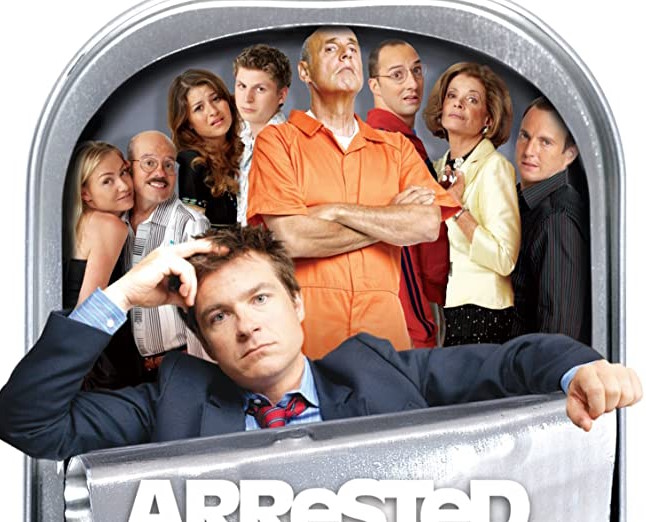
This show does not work broken up into clips. I'm not even sure it works broken up into episodes. It's an incredibly easy show to watch, but I earnestly have to remember the context in which it came screaming into the world and came out of. Horowitz has talked about, in retrospect, the reasons why he felt like it didn't click for a general audience but I think maybe the underlying thing he missed and why I doubt this show was ever going to be considered a classic was that there was not really any particular goal any character was striving towards that is inherently likable.
As much as sitcoms often have characters who you would hate to meet in real life, the show was driven by bad people who often didn't deserve the things they had. Michael Bluth is
supposed to be the good one, the audience surrogate who rolls his eyes, but he seems actively unengaged with the family as much as he can and doesn't really seem to have any sort of personal stake beyond "family" into the ongoing trial of his father. Not to say he needs more, but the thing that drives the plot tends to be misunderstandings, unabashed horniness, or getting the Bluth family something they don't deserve in any shape or fashion. These reasons can mix together but generally it is a lack of overall drive for characters to do anything that really feels like good conflict that earnestly sort of feels like the underpinning problem so far on this rewatch.
Like not only do characters not really have goals beyond maybe out of spite or misunderstanding, but they often switch motivations and intentions on a dime. Sometimes it can feel earned if it's in reaction to new information, but given that a lot of characters don't actually feel that engaged in the plotlines they are in and often stumble into opportunity or failure, it feels like nobody cares about anything that actually happens to them in this show. That's weird, right?
I think there hasn't really been a plotline where I feel like I'm actively rooting for anyone to succeed here and that's sort of weird, right? I think about classic Seinfeld episodes where I want Elaine to somehow get back at the soup nazi or for Kramer to win against the cigarette company, because the characters seem to have a vendetta to begin with. I don't feel this way towards almost all of Arrested Development so far- Michael's many relationships are often with underdeveloped women characters and there's a real air of not actually giving a shit as to what the result is because it has no basis on the plot moving forward.
It earnestly feels like the show's many conflicts and solutions come out of indifference rather than any real drive or motivation. I get there may not be enough time to actually add any pathos to the conflicts in Arrested Development, but so many storylines are driven by inertia that they often feel at odds with the characters in the situations they find themselves in. Given also that the show is often driven with such inertia that actually trying to find anything to grasp onto as motivations for characters that aren't just excuses to have misunderstandings later, like GOB's magician prospects or Tobias' wish to become an actor, it often feels like the show is missing something key.
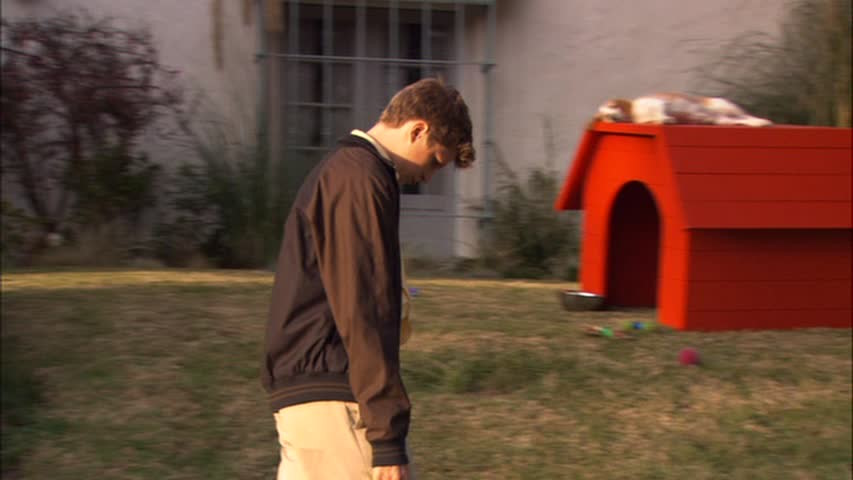
While it's not really my place to say whether Arrested Development's humor was good at the time or not- I was not really "awake" in 2003 when it was airing- it is one of the things Horowitz claims made the show unappealing because of the subject matter it frequently was using. To be clear, it's obvious that a lot of its humor hasn't aged well. But Arrested Development doesn't just let a joke be- if the writers think it's of any worth, it gets repeated over and over as it becomes part of the sliding block writing that the show engages in. This creates big problems when the jokes become bad.
Season 2 is really particularly dated in ways that feel desperately unfunny. When you add the Star Wars Kid joke into the mix of running gags, not only does it feel particularly cloying to the audience to pick up on but also knowing the real life context of the clip makes it land especially loud with a thud. While this Star Wars kid joke is a bit of an offender, it also makes jokes like GOB's blackface puppet Franklin or the copious amounts of collar-tugging jokes regarding abuse of many natures (like Boy Fights, the nurse that Buster becomes attracted to who is always contradictory about what she actually wants out of people, GOB being forced to watch his parents go at it twice, etc) and it outright gets to "mentally disabled people are a joke" by season 3.
I'm not going to begrudge the show for using a word everyone was using back in the 2000s but their depiction of Rita is appallingly bad. The logic that her English accent masks her disability is honestly so lost on me that I could talk about the implications it brings for a while, but there's too many other issues with Rita that I can't also not mention. Her appearance is mentioned as particularly beautiful by the narrator and characters in the show, whereas characters like Maggie or Marta have existed prior and don't get singled down to this particular trait for the most part.
The single worst joke in the show however has to be when they attempt to explain why Rita looks so attractive despite having the mind of a child- she just paid for surgery to reconstruct her face and we get a screenshot of what she looked like before with the narrator implying that if she didn't, Michael wouldn't even be in this situation because he wouldn't have found her attractive. It's bad on multiple fronts, but it also breaks the premise of Rita more than her early appearances did which only pepper soft hints towards her mental disability. In what world is any child pushing to undergo surgery? I can barely make a hospital visit with how complicated the system is, weaved in webs of interlacing medical nonsense.

This is part of the interlocking block puzzle that is this show's writing and takes the forefront of the third season, so it becomes painfully bad when a character is such a miss like Rita. In general, the show's side characters generally tend to overstay their welcome in their oddities, with characters either ramping up to be so weird that it's genuinely hard to watch like Tony Wonder or playing a breed of straight man to antics that actively renders them as the unmovable object to the show's inertia, forcing the show to bounce back and take a new approach to get back to whatever crazy antics it wants to do.
I think in general the metacommentary displayed in the late episodes of Season 3 are also just kind of a bizarre artifact. I've seen shows do this a bit more gracefully before such as Community, and this probably stems from how the show just isn't in the era of being online, but adding multiple pleas to continue the show earnestly does just take you out of it. I understand why it's there, but it doesn't really do anything for the show beyond the moment these things aired.
Is it a bad show? Not by any stretch of the imagination- again, there is a real enviable quality to how much this show is able to toy with these characters and present plots which put them in as many conflict configurations as possible, but I just bounce off this show when presented out of context in a way I never feel about literally anything else. Youtube clips don't seem to have attracted a wider audience- the peak engagement of views any video has gotten on the official channel is under 500k which seems bad when compared to other sitcoms of the same era.

Another funny thing about these clips is that they appear to be accidental perfect clickbait, as they feature some sort of woman in a raunchy-looking situation. To compare, we have The Office's Youtube channel.

Or how about Parks and Recreation?

Community is maybe the closest comparison one could make- a genius show not appreciated in it's time but now seen as more of a classic. Oh, the views here too far exceed anything the Arrested Development channel has gotten.
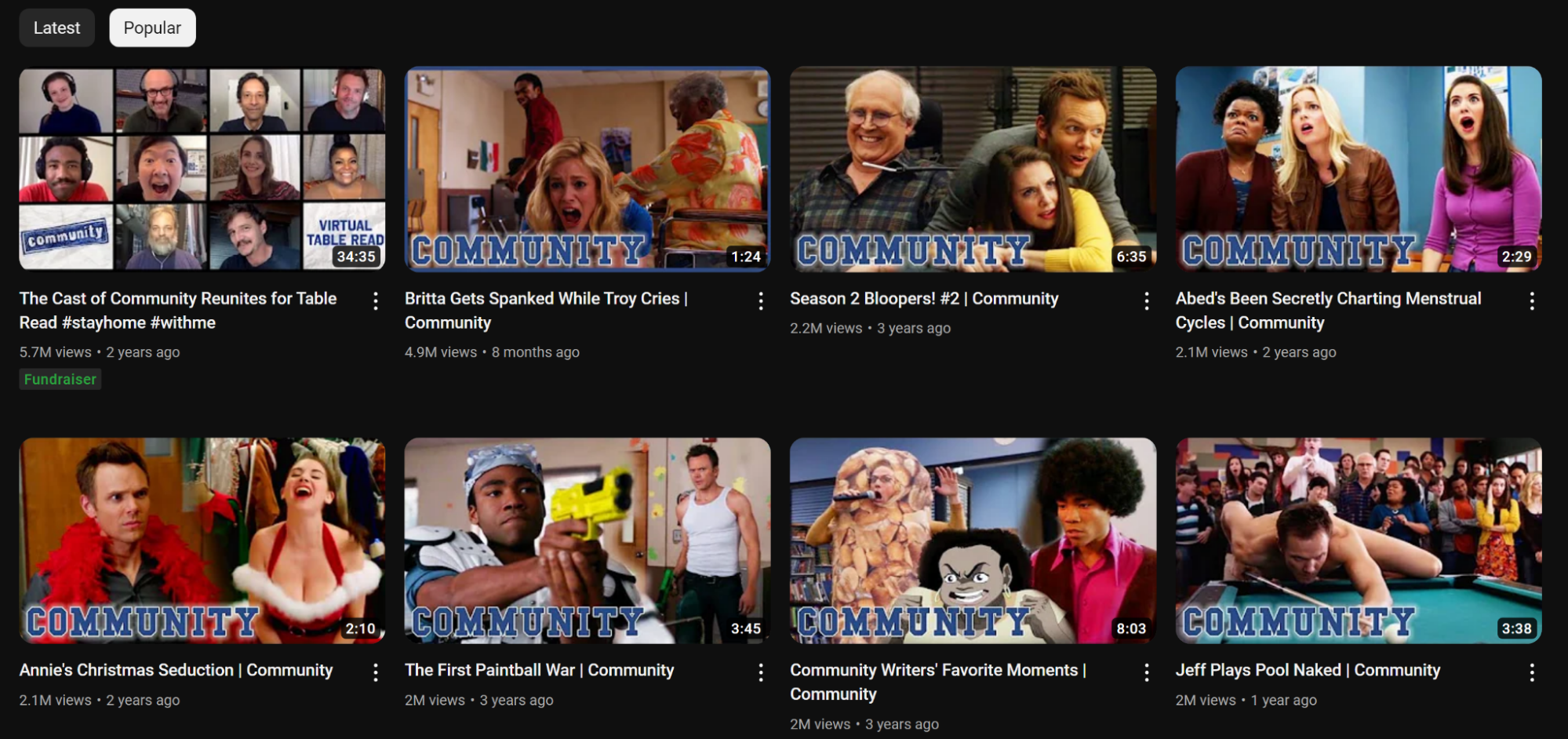
There's a lack of effort shown by the Arrested Development channel staff to an extent- a lot of these channels do more than just curate raunchy thumbnails and titles, but I think in general it shows a sort of disconnect with modern audiences. It's unfair to completely pin the show down for not connecting with generations afterwards, but for such a high watermark series you rarely see discussion beyond a couple gifs casually used in conversation and while it set the bar for other live action tv to follow, it would not be unfair to state Arrested Development likely wouldn't succeed even if it aired today. Aside from the commentary which is so rooted in the social climate of the early 2000s that it's often intermixing events and fears from the real world back into the narrative, it generally just didn't have an "in" for many audiences.
I think it is worth noting that there is a sort of similar piece of media that was influenced by Arrested Development and has a lot of the same issues- Homestuck. There's a better discussion of this sort of influence you can spot in the podcast Homestuck Made This World- particularly the bonus episode about Arrested Development directly. It's also not to say Homestuck was only cribbing from Arrested Development's playbook, but it is a very strong influence on the product, especially earlier on.
What's the main takeaway for this? I more or less just wanted to talk about my own feelings about Arrested Development and whether it could be considered a classic show or not. While its influence is palatable and it still gets some talk now and then, I feel like largely the show had a pretty fundamental flaw that couldn't be fixed within the premise of the show without destroying itself. The Bluths aren't meant to be characters that have real conversations- they're largely too self-invested and unable to hear each other.
Does this make Arrested Development a bad show? No, far from it. It's well-crafted and even holds up in that department despite some dated humor and generally being a little too edgy for its own good. I do feel, however, that if the show really wanted to strive for mass-market success, it would have needed to make concessions of some sort- and it really never could. It's fine as a comedy. I just think it lacks any sort of staying power. I don't feel inspired by Arrested Development, I barely remember coherent plots, and it just exhausts me fully by season 3.
I still haven't watched Season 4 or 5- and I generally don't think I need to. Maybe I'll find the depth I'm looking for in those seasons but given just how "off" the energy is from the beginning of Season 4, Episode 1, I find myself lacking a compelling reason to really give it a fair shot. It does set this up for an eventual future editorial if I ever get around to it- but they really do also tarnish the legacy in a big way. These seasons just aren't the same show- and it also introduces two balls and chains to the show that makes it hard to introduce for new audiences. After all, if the newest seasons of a show are also the more contentious and different and also extremely hard to get into as a newcomer and returning viewer, why even bother with the show especially if it lacks a real ending otherwise?
So yeah, Arrested Development is perhaps too complicated for its own good. While it undoubtedly remains a really big influence for a lot of things that came after, it also just was never going to succeed in hitching a good spot in the pantheon of sitcom tv. It also just doesn't really have the vocal fandom it used to, at least in my experience. While you'll see memes used all the time from it such as dead dove, there are dozens of us, I've made a big mistake, etcera, you're not going to be able to watch it from the tenor gif keyboard like The Office. That's not a bad thing, but it means it continues to stay niche. The show has not aged like wine, nor has it aged like milk either, but it ultimately still looks unappealing to most audiences.
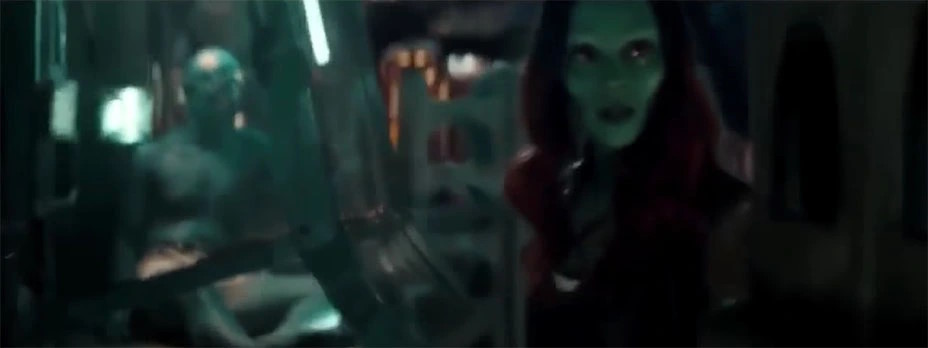
I'm not sure if I want to recommend it. I think it is very important to understand a lot of the things it gets referenced by, but not everyone is looking for context these days. While it absolutely is more than just a piece of media you consume for context, it does sort of feel aged and not relevant in a way that just doesn't feel right for a show that came out during 2003. I don't imagine it gets better with time.











